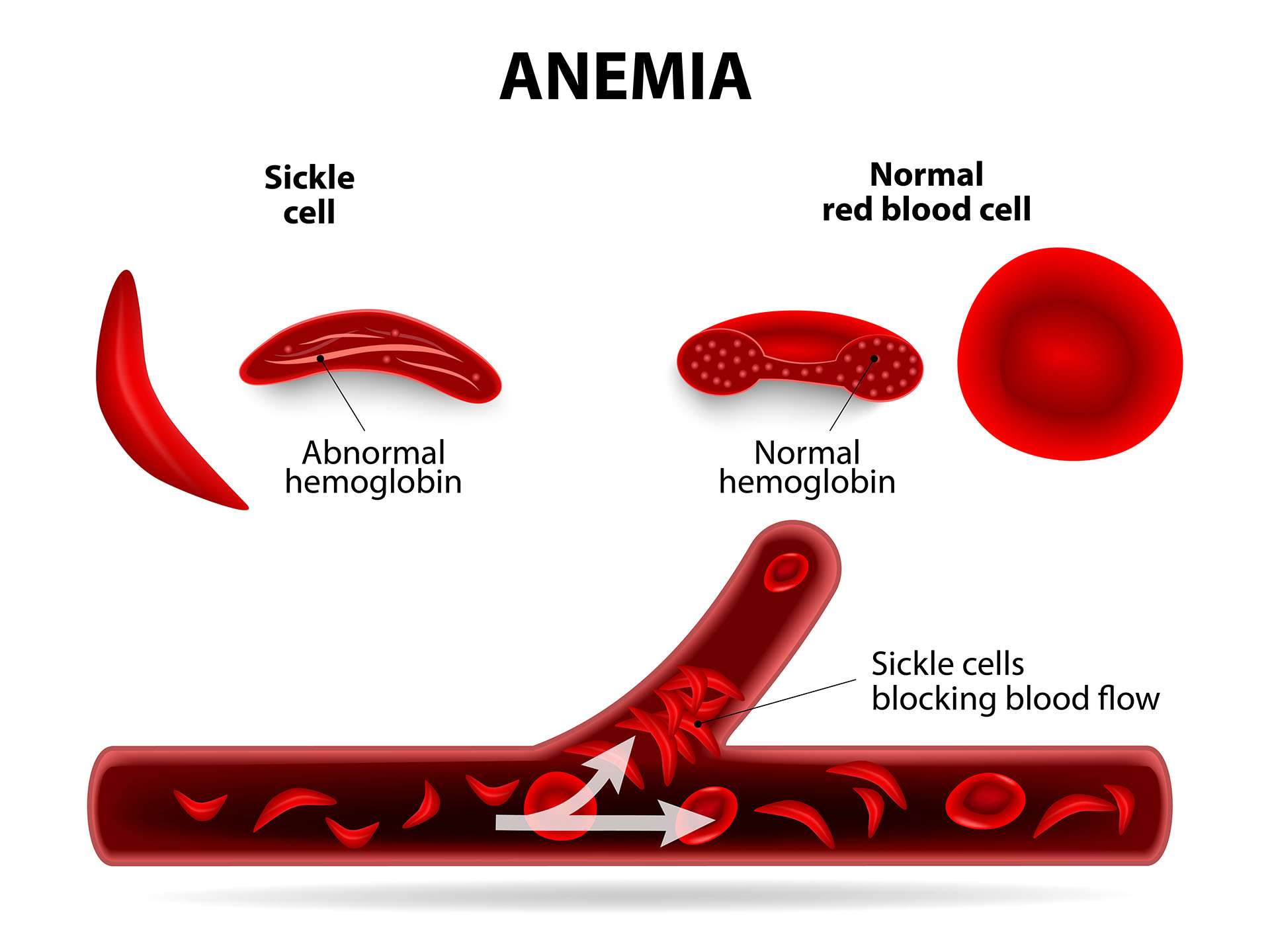Causative & risk factors
Broadly speaking, anemia can result from any of the following cause:
- Lack of red blood cell production
- Increased destruction of formed red blood cells
- Loss of blood from the body
Certain specific types of anemia are:
Iron deficiency anemia – arises due to a deficiency of iron in the body
Vitamin B12 deficiency anemia – arises due to a deficiency of iron or vitamin B12 in the body.
Aplastic anemia – arises due to a bone marrow defect affecting the production of red blood cells in the marrow
Anemia of chronic disease – Chronic diseases such as cancers, HIV etc. can hamper the production of RBCs thus producing anemia.
Sickle cell anemia – This is an inherited form of anemia in which faulty red blood cells are produced.
Clinical presentation
The symptoms will start manifesting as anemia becomes severe. An anemic patient starts feeling breathless and fatigued even with little exertion. He may be confused or forgetful and experience episodes of dizziness. Numbness and tingling are felt in the extremities. Skin looks pale, muscle strength is reduced, movements may become uncoordinated and the patient starts losing weight. The heartbeats become irregular.
Investigations
A complete blood count is performed along with examination of a peripheral smear. Blood levels of ferritin, vitamin B12, vitamin C and folate are measured. Depending upon the type of deficiency suspected, the doctor may order additional tests such as Schilling test, measurement of methylmalonic acid and test for antibodies against the intrinsic factor. A bone marrow biopsy may be performed.
Treatment
Once the cause of anemia is identified, treatment involves correction of the cause. If a specific vitamin deficiency is identified, the patient is advised to consume foodstuffs containing those nutrients regularly. Oral supplements of the necessary vitamin are advised for a specified period. In cases of severe vitamin B12 deficiency, injectible B12 is preferred. Any underlying chronic diseases must be treated accordingly. Blood transfusions may be necessary in severe hemolytic anemia or loss of blood. Bone marrow transplant may be done in certain forms of anemia such as sickle cell or aplastic.
Recent updates
A study found that inspite of providing vitamin supplementation, many patients who have undergone laparoscopic bypass surgery eventually develop vitamin B12 or iron deficiency anemia.






























